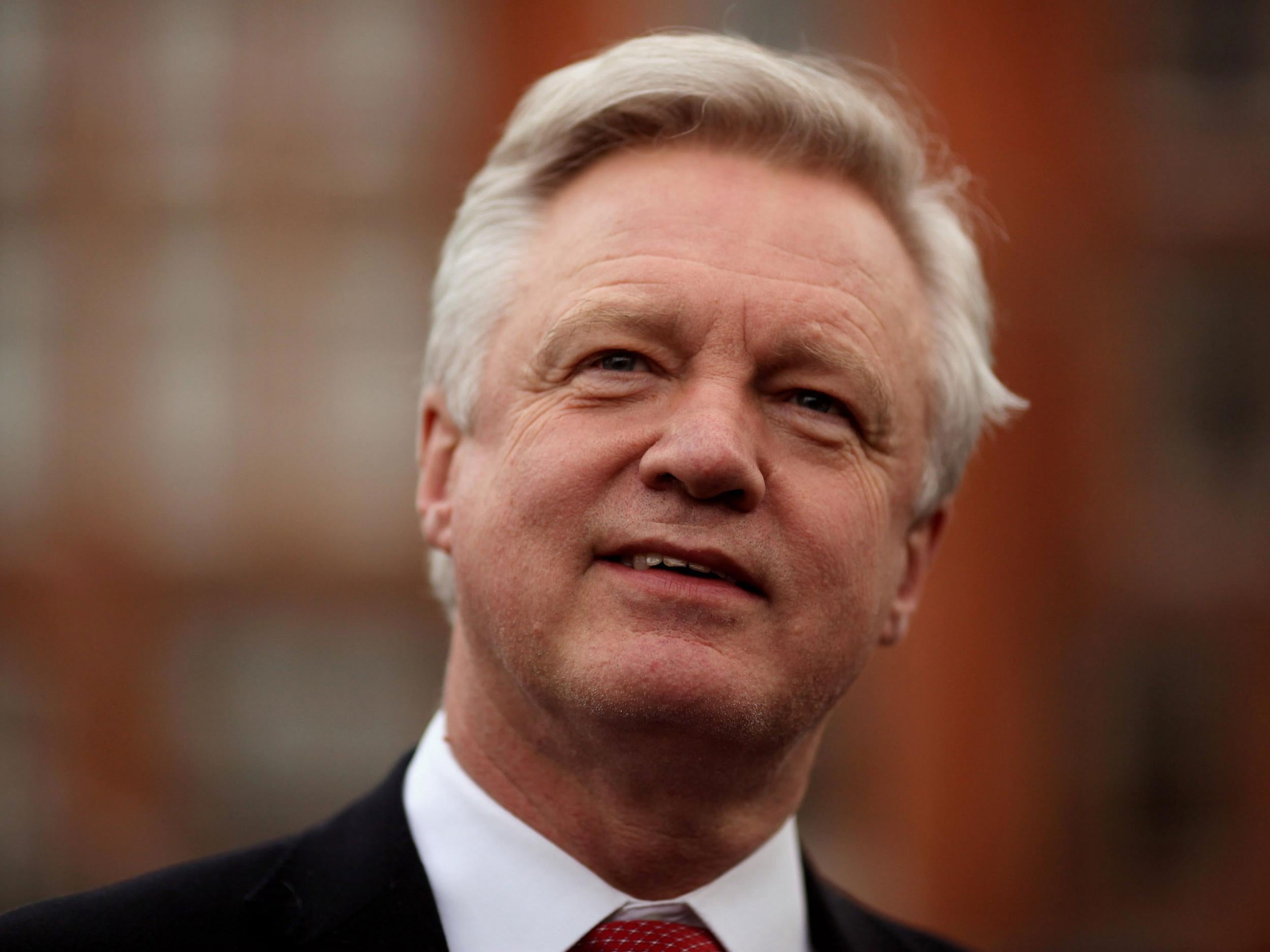Minister for Brexit David Davis appeared unaware of how EU trade deals actually work
Mr Davis believed it was possible to negotiate one-on-one trade deals as recently as May

Your support helps us to tell the story
From reproductive rights to climate change to Big Tech, The Independent is on the ground when the story is developing. Whether it's investigating the financials of Elon Musk's pro-Trump PAC or producing our latest documentary, 'The A Word', which shines a light on the American women fighting for reproductive rights, we know how important it is to parse out the facts from the messaging.
At such a critical moment in US history, we need reporters on the ground. Your donation allows us to keep sending journalists to speak to both sides of the story.
The Independent is trusted by Americans across the entire political spectrum. And unlike many other quality news outlets, we choose not to lock Americans out of our reporting and analysis with paywalls. We believe quality journalism should be available to everyone, paid for by those who can afford it.
Your support makes all the difference.The newly appointed minister in charge of negotiating Britain’s exit from the European Union appears unaware of how EU trade deals work, it has emerged.
David Davis was appointed as Theresa May’s Secretary of State for Leaving the European Union on Wednesday evening immediately after she arrived at Number 10.
The staunch Leave backer, a former Europe Minister, however said during the referendum campaign that Britain would negotiate individual trade deals with other EU countries.
However one of the main basic features of the European Union is that EU countries cannot negotiate individual trade deals without side countries and instead do so as a bloc of 28.
The basic fact, which was paraded by other parts of the Leave campaign during the referendum, leaves Ms Davis’s original plan for one-on-one trade deals in tatters.
“Post Brexit a UK-German deal would include free access for their cars and industrial goods, in exchange for a deal on everything else,” he said on 26 May this year.
“Similar deals would be reached with other key EU nations. France would want to protect £3 billion of food and wine exports. Italy, its £1 billion fashion exports. Poland its £3 billion manufacturing exports.”
Mr Davis was one of the first appointments in Ms May’s cabinet and will head a brand new government department with responsibility for Brexit.
Other key appointments who will be involved in secession negotiations include Boris Johnson, who will be Foreign Secretary.
Negotiations will not begun until Ms May triggers the so-called Article 50, a provision in EU treaties which formally starts the process of a country leaving the EU.
Though the exact shape of Brexit has not been decided, the new Chancellor Philip Hammond this morning told LBC radio: "We will come out of the single market as a result of our decision to leave the European Union."
He went one to say that he hoped Britain would be able to negotiate "access" to the market through trade deals.
David Cameron declined to trigger the treaty provision, arguing that it was for his successor to do so.
Join our commenting forum
Join thought-provoking conversations, follow other Independent readers and see their replies
Comments